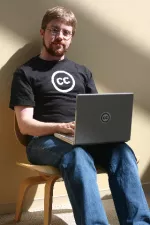
Copyright, Technology, and Access to the Law: Old Problems and New Solutions
James Grimmelmann of New York Law School
"All persons are presumed to know the law," goes the maxim, but that presumption only makes sense if in fact the law is readily available for all persons to learn. Today, one the largest threats to accessible law comes from a surprising source: copyright. Publishers claim copyright in their selection, arrangement, and annotations of laws; private authors of model codes go them one better and claim copyright in the text of the laws themselves. In so doing, they frame the issue in terms of intellectual property's classic trade-off: incentives for creation versus public access to the results. And they're not wrong, either: historically, exclusive rights have been an important component in creating legal publishing institutions. Today, however, we can and should go further. Just as the Internet has helped solve other problems of information production by providing near-costless distribution and catalyzing large-scale collaboration, it's also opening up new possibilities for making the law accessible.
This talk:
- Discussed recent cases of copyright claims to "the law."
- Put them in the historical context of legal publishing technology.
- Explained why computers and the Internet shift the proper balance towards more open access.
- Suggested some tentative heuristics for thinking about legal copyrights.
About James
James Grimmelmann is an Associate Professor at New York Law School, where he's affiliated with the Institute for Information Law and Policy. He studies how the law governing the creation and use of computer software affects the distribution of wealth, power, and freedom in society. As a lawyer and technologist, he tries to help these two groups speak intelligibly to each other. He teaches intellectual property and Internet-related subjects.
Links